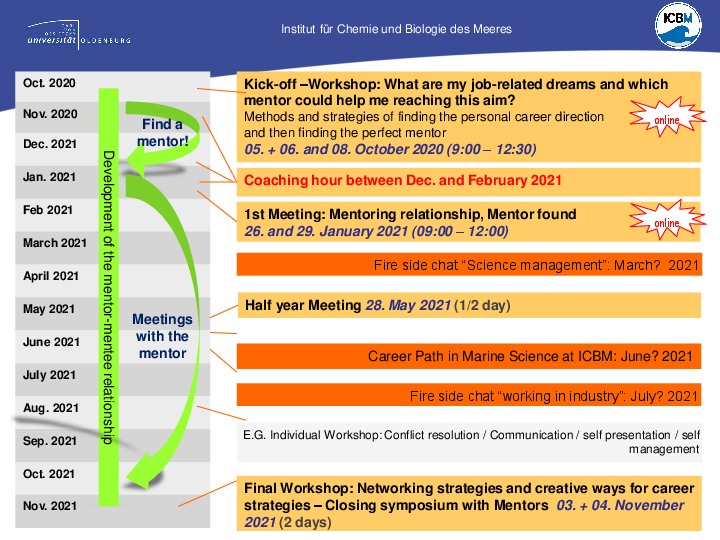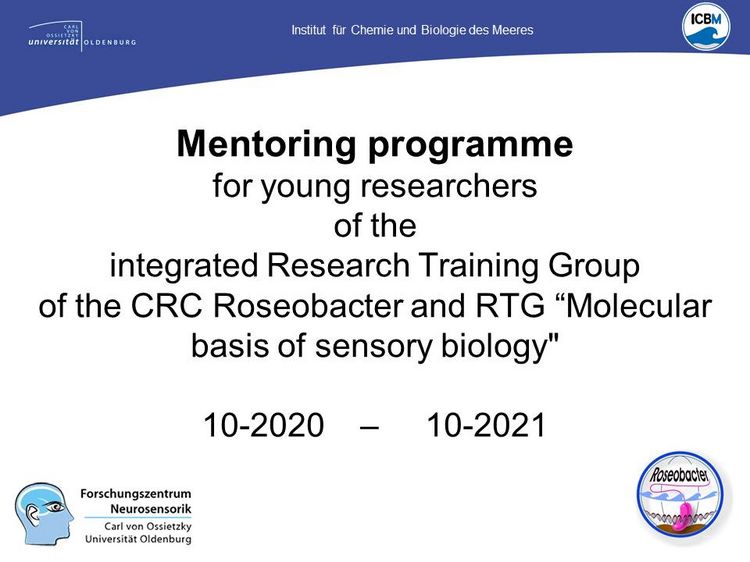Downloads
Contact for questions
Organisation and coordination of "ICBM-Mentoring program" of the Integrated Research Training Group of the CRC Roseobacter, PhD Research Training Group EcoMol “The Ecology of Molecules”, and of the PhD program 'Environmental Sciences and Biodiversity'
Mentoring
What is Mentoring?
Mentoring is a proven and effective way of purposefully supporting young scientists and promoting leadership development.
Mentoring is based on the informal transfer of experience and knowledge and the individual support of a young professional (mentee) by an experienced professional in the field (mentor).
Mentoring encourages professional and personal development.
Mentors support young professionals during their professional identification process, consult on career planning and give constructive feedback. Mentors provide vital know-how on leadership requirements, structures and processes in science and industry, explain unwritten rules and facilitate access to relevant network structures.
Features of mentoring:
- Mentoring takes place outside of dependent relationships and is not based on authority.
- The mentor-mentee relationship is generally temporary, within which regular contact takes place.
- Mentoring is independent of age, but in most cases mentors are older than mentees.
- Mentoring is a bidirectional process of give and take. Even the mentor can profit in the form of personal and/or professional development.
- Mentoring is performed in public: The structure of the programme and existence of supporting relationships are visible and transparent.
Conditions for mentoring are voluntariness, mutual goodwill, respect and trust.
Mentoring is not professional consulting and cannot substitute for it.
The term “mentoring” originates from Greek mythology: Odysseus asked his friend Mentor to teach and consult his son, Telechamos, during his absence. However, the goddess Pallas Athene often took the form of Mentor and carried out the tasks herself.
Termine Mentoring 2020/21


![[Translate to English:]](/f/5/_processed_/3/2/csm_ICBM-Logo-transparent-_91fe1c6774.png)
